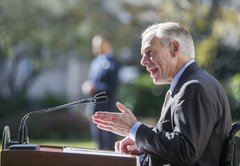Launch school principals leadership training program
Greg Abbott
"To improve campus leadership, the state should offer financial support that enables public school principals and others in leadership positions to receive optional advanced leadership training."
Abbott-O-Meter
Promise Kept

